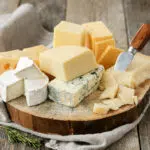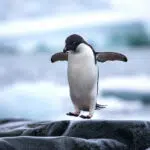International Hoof Care Week is observed in the third week of January, Tuesday through Friday, and this year it takes place from January 20 to 23. It is a week dedicated to educating the public, especially owners of hoofed animals and zoos that keep them, on the significance of hoof care and measures to guarantee healthy animal hooves. Hoofed animals such as horses, cattle, and pigs, require proper care for their hooves. Negligence in their hooves’ care can result in infections, lame, and sore feet. Did you know that hoofed animals also have toes? Some, like horses, have odd toes, while others, like cattle, have even toes!
History of International Hoof Care Week
International Hoof Care Week was first observed in 2003 when the “American Farriers Journal” organized its first International Hoof Care Summit. The week was created to reiterate the importance of hoof care and to educate the public on ways to manage their animals’ hooves. This follows the increase in dangers associated with animals having untended hooves due to their owner’s negligence.
For owners of hoofed animals, especially horses, hoof care is paramount to the healthy living of their beasts. It should be noted that when talking about hooves, it is almost impossible to exclude horses from the picture, as most hoof care sensitization targets them. This might be because they are widely owned as aesthetic animals and by royals, as is seen in their early domestication around 4000 B.C. Perhaps, the earliest horse owners in ancient Rome also realized the importance of hoof care, so they created a shoe-like object fitted to their horses’ hooves. The earliest forms of horseshoes first appeared in ancient Rome around 500 B.C.
In the 20th century, some men, known as farriers, skilled in the act of tending to hoofed animals, particularly horses, began to spring up. Farriers were regarded as authorities in the care of hoofed animals. The American Farriers Association (A.F.A.) was created in 1971, and books on hoof care were published. The 1976 book “Horseshoeing Theory and Hoof Care” by Leslie Emery, Jim Miller, and Nyles van Hoosen focused on the shape of natural hooves. Today, the “American Farriers Journal” publishes several annual papers that answer various questions about hoof care, both in domestic and wild animals trapped in zoos. They also chair the observation of International Hoof Care Week.
International Hoof Care Week timeline
Horses appear in the evolutionary trend.
Horses mostly live as wildlife in the bush, but domestication starts.
The earliest type of horseshoe is invented in ancient Rome.
The American Farriers Association is founded in Albuquerque, New Mexico.
Leslie Emery, Jim Miller, and Nyles van Hoosen publish the book “Horseshoeing Theory and Hoof Care.”
Jaime Jackson starts the American Association of Natural Hoof Care Practitioners.
The “American Farriers Journal” holds the International Hoof Care Summit, where the celebration of International Hoof Care Week is born.
International Hoof Care Week FAQs
How often should I pick my horse's hooves?
Ideally, horse hooves should be trimmed at least three times a week or four to five times a month. If this isn’t achievable, horse hooves should be trimmed immediately once one notices the horses are uncomfortable with it. However, if you choose to do it several times a month, you’d have to be careful not to over-trim and hurt the horse’s feet.
Can I trim my horse's hooves myself?
You can. However, you have to learn to do it well from a professional, or you might end up irritating the horse and incur injuries.
What does an unhealthy hoof look like?
Cracking and chipping are some of the signs of an unhealthy hoof. Dirty and abnormally shaped hooves can also indicate an unhealthy hoof.
How to Observe International Hoof Care Week
Inform about hoof care
Know someone who owns an ungulate? Go around this week and inform them of the importance of hoof care and how to ensure their animals' hooves are properly taken care of.
Contact a farrier
A farrier is a specialist in hoof care. Contact one and make an effort to learn from their knowledge. Ask them pressing questions about hoof care and share what you learn.
Learn the significance of hoof care
Read about the importance of healthy animal hooves, their treatment when affected, and possible signs to note when they are infected. You may just save your animal from an expensive vet trip!
5 Interesting Facts About Ungulates That Will Interest You
Largest land animal to exist
Paraceratherium, also known as the Near horn beast, is the largest land animal that has ever existed.
Dominate important domestic animals
Almost all important domestic animals are ungulates.
Exclusively beneficial to man
They are the single most important group of animals that are directly beneficial to humans.
Fastest growing mammalian bone
Antlers, found on some ungulates as opposed to horns, grow faster than any other mammal bone.
Use chemicals to communicate
Ungulates use urine, feces, and glands to communicate with each other for specific purposes.
Why International Hoof Care Week is Important
It helps to maintain animal well-being
Most ungulates, especially horses, get particularly uncomfortable when their hooves are not taken care of. This week encourages the care of their hooves.
It improves animal healthy-living
Untended hooves impede the everyday living of ungulates. For example, a horse finds it challenging to sprint with untended hooves. International Hoof Care Week informs us of how hoof care can improve a horse's healthy living.
It makes hoofed animals feel loved
Tending to animal hooves makes the animals feel cared for and increases the bond between them and their owners. We love this!
International Hoof Care Week dates
| Year | Date | Day |
|---|---|---|
| 2024 | January 16–19 | Tuesday–Friday |
| 2025 | January 21–24 | Tuesday–Friday |
| 2026 | January 20–23 | Tuesday–Friday |













